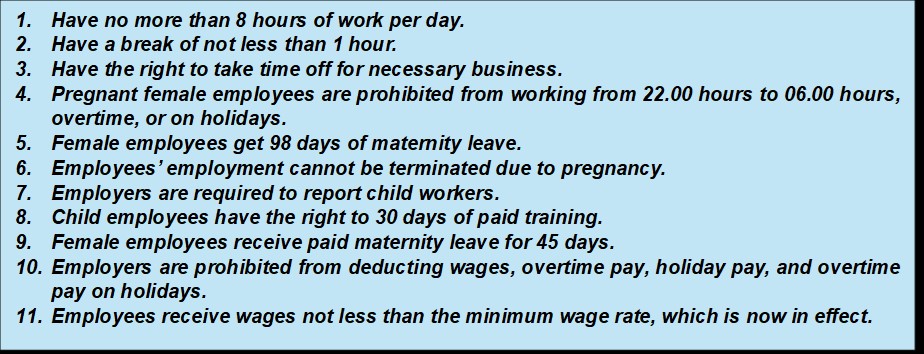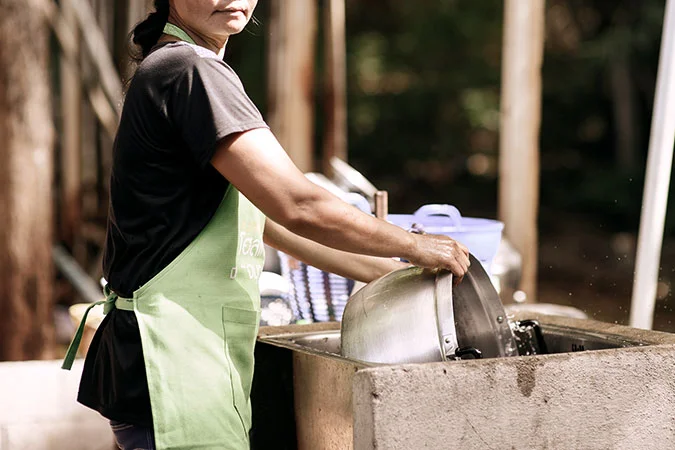Rapid Asia carries out projects worldwide, finding evidence for sustainable change to support our clients and move their programs forward. Evidence is not just needed to inform project decisions, but to persuade policy makers. A recent study on domestic workers did just that!
In 2022, Rapid Asia undertook a study on behalf of the ILO with migrant women domestic workers and private employers in Thailand, Malaysia, and Singapore to examine work conditions and skill levels. The report, titled: “Skilled to care, forced to work?” confirmed that migrant domestic workers in the three countries lack equal access to social security and don´t receive the same benefits as regular workers. Because they are informal workers, many domestic workers don’t receive basic work entitlements like reasonable work hours, leave and wages that recognise the skill level of the work.
The report emphasises the need for governments to prioritise and implement changes to address issues, such as the lack of decent work conditions, underpayment and the prevalence of forced labour among migrant domestic workers.
In Thailand, the Ministry of Labour´s Ministerial Regulation No. 14 (2012) under the Labour Protection Act 1998, excluded domestic workers from the scope of some of the labour and social protections, such as minimum wage, equal pay for equal work, limits on working time and compensation for overtime. However, the Royal Thai government (RTG) has recently heeded the call for change in domestic workers’ rights under Ministerial Regulation No. 15 (2024) where 11 new clauses have been added to increase the protection of domestic workers. A step closer to fair and equal work for all.

Figure 1: New areas under Ministerial Regulation No. 15
The new regulation is a testament to what Rapid Asia hopes to achieve when working with development clients, finding evidence that can lead to sustainable change. The ILO, who has been working with the RTG on the domestic work issue for some time, emphasized the importance of obtaining impartial and reliable evidence, saying:
“The evidence Rapid Asia uncovered through their study with migrant domestic workers and employers was instrumental in convincing the RTG to expand the protection for domestic workers, which has been long overdue”
(Anna Engblom, Chief Technical Adviser at ILO)
Domestic work is a growing sector in Thailand, estimated at 290,000 domestic workers in 2018 according to the Informal Economy Survey (IES)), with the majority being women. [1] According to the acting director of the Thai Health Organisation´s Office of Specific Population Group Support, there are 111,954 migrant domestic workers from Laos, Myanmar, Vietnam, and Cambodia in Thailand [2]. This suggests that nearly half of the domestic workers in Thailand are migrants, underlining the importance of making sure policy changes are inclusive of migrant workers as well.
The ILO study on domestic workers further found that 96% of private employers in Thailand would strongly agree or agree that social security should be mandatory for domestic workers in Thailand. Further, more than four in five employers (83%) stated that private employers should be responsible for paying social security for their domestic workers.

Figure 2: Employer´s willingness to pay social security
The additional benefits now available for all domestic workers in Thailand are worth celebrating. But the government could do more by considering mandatory social security for all domestic workers, including migrants. Not only are employers willing to pay social security, but the sheer volume of migrant domestic workers could also provide a significant revenue boost for the RTG. Here, you can access the full report.
If you found this article useful, please remember to ‘Like’ and share on social media, and hit the ‘Follow’ button to never miss an article. If you liked this blog, you may also want to read [Migrant domestic workers need equal access to social security].
About the authors: Daniel Lindgren is the Founder of Rapid Asia Co., Ltd., a management consultancy firm based in Bangkok specializing in evaluations for programs, projects, social marketing campaigns and other social development initiatives. Denise Erber holds a Master´s degree in Global Studies and is working with Rapid Asia as independent consultant.
Photo by Pornvit Visitoran, A woman migrant worker washes pots in Bangkok, Thailand. Photo: UN Women

